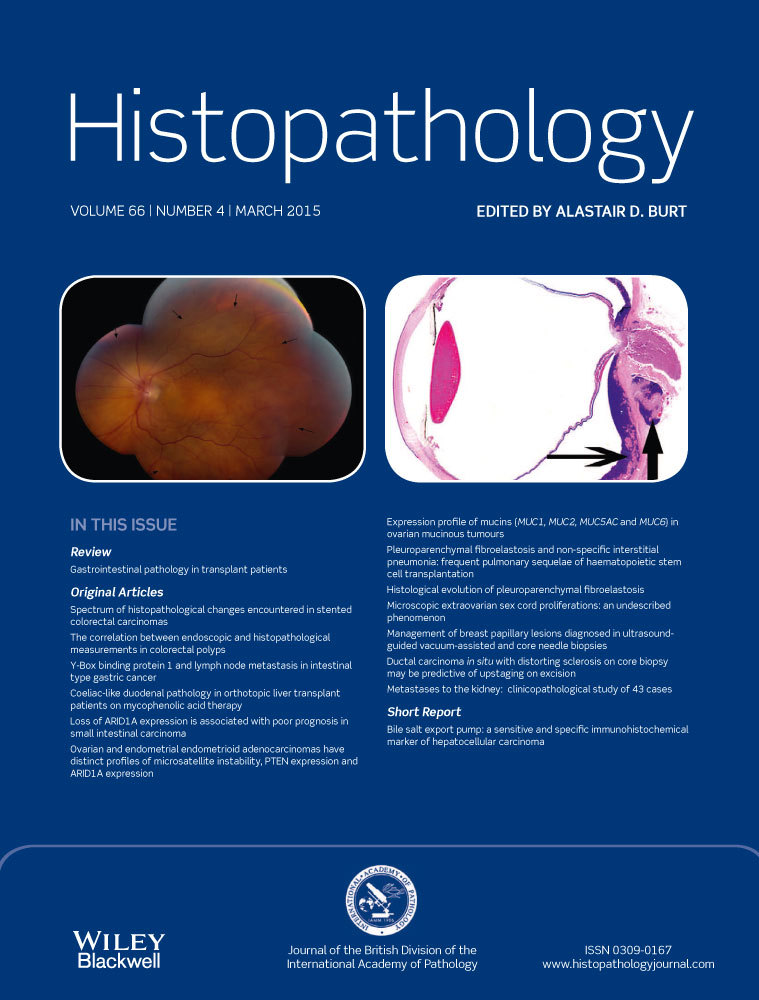Loss of ARID1A expression is associated with poor prognosis in small intestinal carcinoma
Abstract
Aims
To investigate AT-rich interactive domain-containing protein 1A (ARID1A) and p53 expression in small intestinal carcinoma (SIC) and to determine its prognostic significance.
Methods and results
Immunohistochemical staining for ARID1A and p53 was performed in 178 SICs using a tissue microarray (TMA). Loss of or low ARID1A expression was observed in 36 (20.2%) and 60 (33.7%) of cases, respectively. Aberrant p53 expression was observed in 99 (55.6%) cases. Loss of or low ARID1A expression was found to be associated with signet ring cell carcinoma and undifferentiated carcinoma, a high-grade tumour, and a higher T stage. No relationship was found between aberrant p53 expression and clinicopathological factors or overall survival. Patients with loss of ARID1A expression, irrespective of p53 expressional status, showed significantly poorer overall survival than those expressing ARID1A. Multiple regression analysis revealed that grade and pT stage were associated significantly with ARID1A loss, and multivariate analysis showed that patients with high ARID1A expression had a lower risk of death than those with loss of ARID1A expression.
Conclusions
Low or loss of ARID1A expression is correlated significantly with a high-grade tumour, higher T stage, and poorer overall survival. These findings suggest that ARID1A expression could be used as a prognostic marker in SIC.




